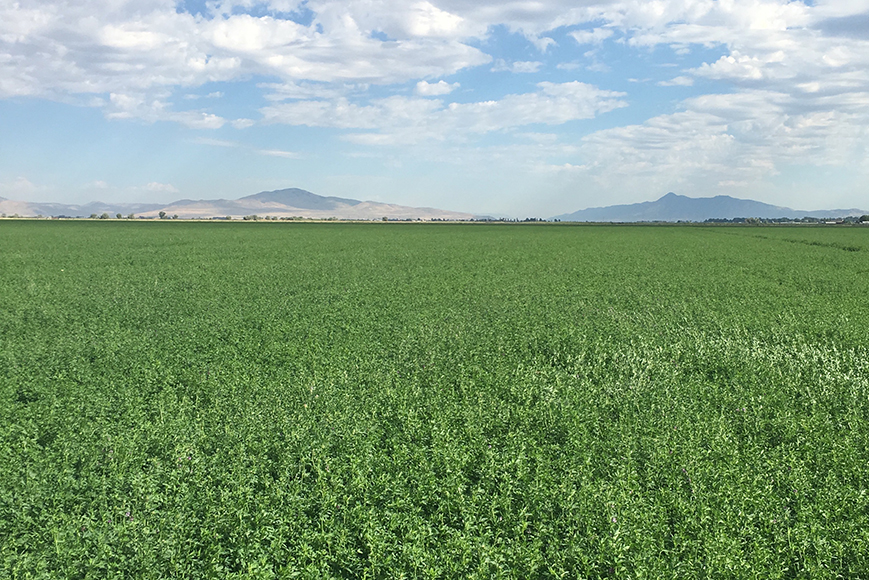Use Technology to Evaluate Alfalfa at Season’s End

As the season winds down, it’s time to start thinking about next year’s hay crop. A great way to start is by taking a look at all of your alfalfa fields now in the R7® Field Monitoring Tool from WinField® United.
Alfalfa fields that are trending down should be inspected first. Here are some tips to deal with those problem fields:
Alfalfa fields that are trending down should be inspected first. Here are some tips to deal with those problem fields:
- Check your records to see if yields in those fields are down from previous years.
- Look at scouting notes to see if the fields had high insect or disease pressure.
- Look at the growth charts in the Field Monitoring Tool to see if the peaks for this year are off compared to past years.
- Call up in-season images of the lower-trending fields. Check to see if there are glaring spots of low productivity and if those spots are pulling the field down, or if the field is trending down overall.
- If there are poorer spots, scout the field and see what is causing them. While you are in the field, take stand counts and evaluate roots and crowns to see if it’s time to pull the stand out or to continue production.
- If the stand and crowns are still good, take soil samples, check results for nutrient deficiencies and address them by implementing variable-rate into your fall fertility applications.
- See if these fields have yielded higher or have tested higher for forage quality.
- Check in-season imagery to see if fields are consistent, or if there are areas that stand out as higher-producing.
- If there are areas that stand out, do tissue and soil sampling in those areas. Consider variable-rating those spots, as they may be removing nutrients from your soil. Apply the correct amount of nutrients back into those areas.
- If you checked your records and didn’t notice an uptick in yield or forage quality, check your scouting records to make sure these higher biomass spots are not thick weed patches.
- Check growth charts to see if the peaks are consistent with previous years.
- If they are lower, repeat the above steps of scouting the field to evaluate the stand and crowns.
- Look at in-season imagery to check for unevenness in biomass.
- If there is unevenness, go out and scout those spots. Soil sample them separately and look into doing variable-rate fertility, if it is needed.

